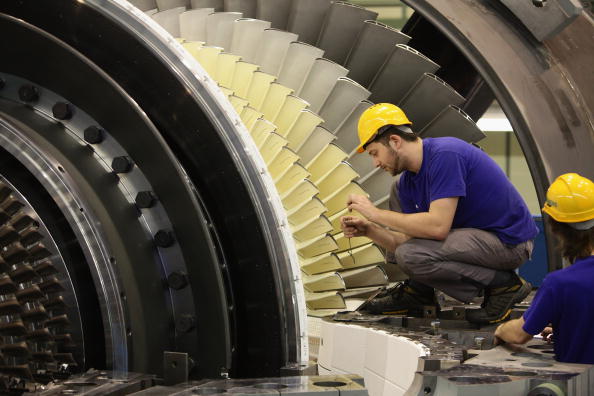Eurozone business confidence at six-year low as malaise continues

Business confidence in the Eurozone economy reached an almost six-year low in July, with industrial sentiment falling significantly, a European Union survey showed today.
Read more: ECB prepares stimulus to kickstart Eurozone economy
Yet consumers became more positive, continuing the trend of domestic demand propping up euro area economies.
The business climate indicator by the EU’s official data body Eurostat fell to minus 0.12 from a positive reading of 0.17 in June, the lowest it has been since the end of 2013.
Eurostat’s economic sentiment indicator, a gauge of different groups’ confidence in the economy, decreased by 0.6 points to 102.7 in July, continuing the downward trajectory it has been on since the start of 2018.
Europe’s biggest economy Germany dragged down the score with economic sentiment falling significantly by 2.4 points.
Industrial confidence fell by 1.8 points to minus 7.4, below economists’ expectations of minus seven.
The figures are the latest sign of malaise in the Eurozone economy as global trade tensions, Brexit, and weak demand from China take their toll.
The European Central Bank (ECB) last week signalled it was about to pump more money into the Eurozone economy by cutting interest rates or buying bonds.
Germany, traditionally the economic powerhouse of the zone, has suffered in 2019. Its government predicts GDP will grow by just 0.5 per cent in 2019, compared to the 2.1 per cent it once predicted.
“The drop in sentiment in the industrial sector left it at its lowest level since August 2013,” said Melanie Debono, European economist at Capital Economics.
July’s survey “adds to evidence from purchasing managers’ index (PMI) data published last week that the euro-zone economy will expand by a meagre one per cent or so this year,” she said.
Read more: Eurozone relapses as manufacturing downturn deepends
Debono said this strengthens the case for stimulus from the European Central Bank (ECB) “sooner rather than later”.